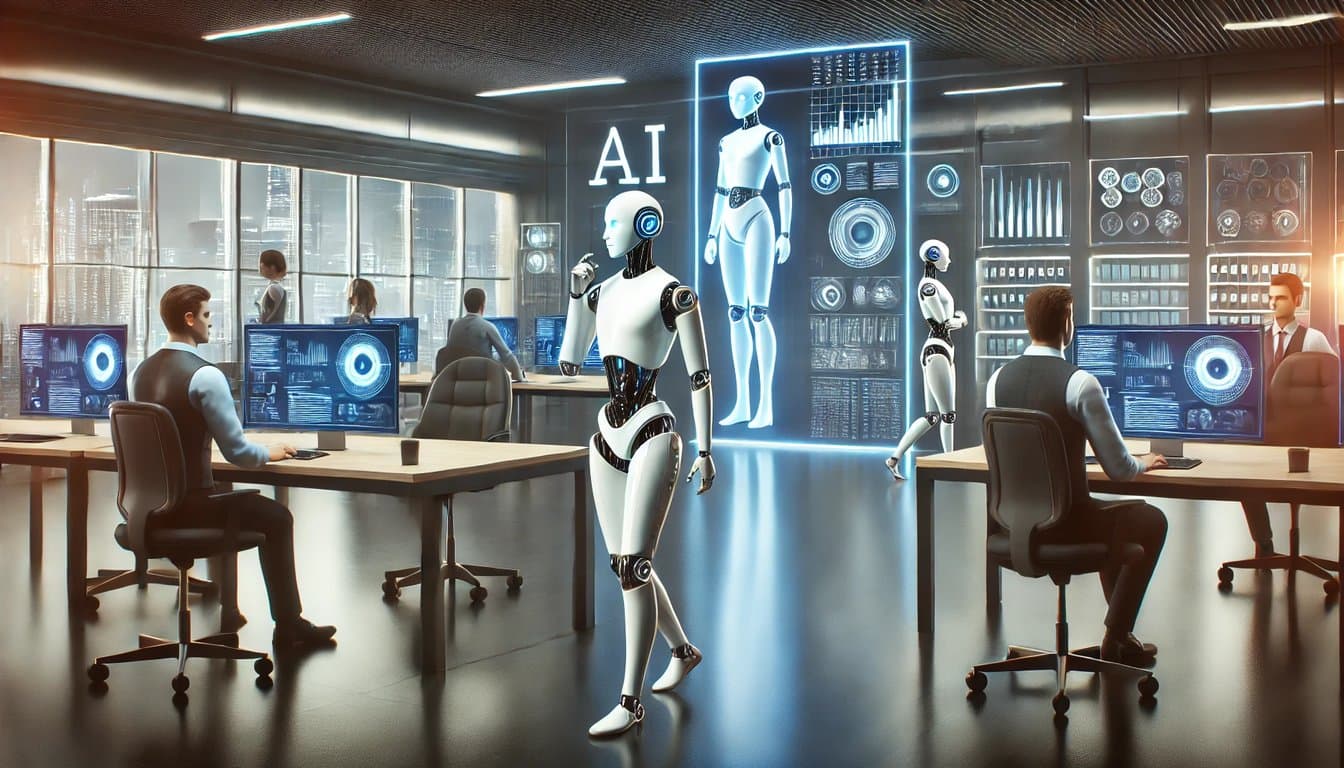
In recent years, artificial intelligence (AI) has been at the forefront of technological advancements, sparking both excitement and concern about its impact on the job market. While some fear that AI will lead to widespread job losses, emerging research suggests a more optimistic outlook: AI is poised to create numerous job opportunities across various sectors. This article explores how AI is reshaping the employment landscape and the potential it holds for job creation.
The Numbers: AI's Positive Impact on Employment
Recent studies have shed light on AI's potential to generate new jobs:
According to research by Pearson and ServiceNow, AI is expected to create 320,000 new jobs in Britain by 2028 [1].
Globally, AI is projected to generate approximately 12 million jobs by the end of 2025, as reported by Khazna Data Centers and WhiteShield [2].
The World Economic Forum highlights that while AI will affect 40% of jobs worldwide (and up to 60% in advanced economies), it will also create new roles and opportunities [3].
These figures challenge the notion that AI will solely lead to job losses, instead pointing to a more nuanced reality where new technologies create new employment opportunities.
Sectors Experiencing Growth
The AI revolution is not affecting all industries equally. Some sectors are poised for significant growth:
Technology, Media, and Telecommunications: This sector is expected to see a boom with 320,000 new roles focused on implementing new technology [1].
Education: An estimated 190,000 new jobs are projected in this field [1].
Healthcare: Approximately 90,000 new jobs are anticipated [1].
IT and Data Centers: The expansion of data centers globally will require significant labor for planning, construction, and operation [2].
Emerging Job Roles
As AI becomes more integrated into various industries, several job roles are becoming increasingly in demand:
Computer and Information Systems Managers: In Britain alone, there's an expected demand for 27,200 new roles [1].
Developers: An additional 20,800 new roles are projected [1].
Data Engineers: 9,400 new roles are anticipated [1].
AI Specialists: Roles focused on implementing and overseeing AI technologies are on the rise [1].
Data Scientists and Data Integration Specialists: These roles are growing, particularly in sectors like financial services [1].
The Global Perspective
The impact of AI on job creation is not limited to developed economies:
Emerging markets like India are poised for significant gains, with up to 34 million new roles expected to sustain an annual growth rate of 6.3% over the next five years [1].
The United States is forecast to add a million job roles by 2028, driven by an additional 2.04 million technology roles required to implement AI and related technologies [1].
While most countries will see job growth, a few (such as Germany and Japan) may experience workforce shrinkage, possibly due to aging populations [1].
Preparing for the AI-Driven Job Market
As the job market evolves with AI, several key actions can help individuals and organizations prepare:
Upskilling and Reskilling: Employers should provide tools and programs for workers to acquire new skills, especially in sectors at risk of automation [1].
Fostering an AI-Friendly Culture: Business leaders should encourage employees to experiment with AI and understand its applications [1].
Identifying Transferable Skills: Programs that identify transferable skills can help build new professional pathways within the workforce [1].
Investing in Digital Skills: Governments and educational institutions should focus on teaching digital skills to prepare the workforce for AI-related jobs [3].
Supporting Entrepreneurship: As small and mid-sized businesses create a disproportionate amount of new jobs, fostering an environment that supports entrepreneurs will be crucial [3].
Conclusion
While AI will undoubtedly change the job market, it's clear that its impact will be more nuanced than simply eliminating jobs. By creating new roles, enhancing productivity, and driving innovation across sectors, AI has the potential to generate significant employment opportunities. The key lies in preparing for this shift through strategic planning, investment in skills development, and fostering an adaptable workforce ready to embrace the AI revolution.
As we navigate this transformative period, it's essential to approach AI with a balanced perspective – recognizing both its challenges and the vast opportunities it presents for job creation and economic growth.
[1] Source: ServiceNow research via diginomica
[2] Source: Khazna Data Centers and WhiteShield via capacitymedia
[3] Source: World Economic Forum via weforum



